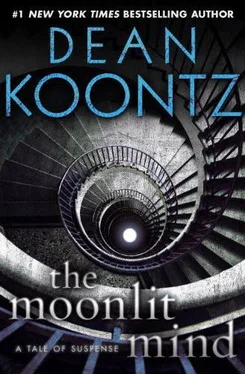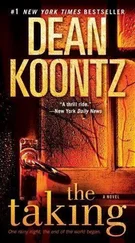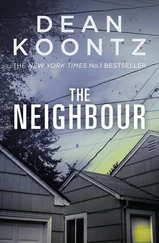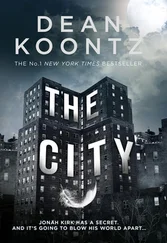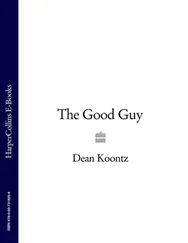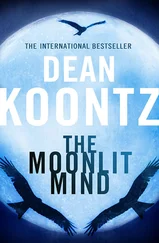The whimpering boy he hears is a boy he doesn’t want to be, a boy who is not the truest Crispin that he is capable of being. Shamed anew but for different reasons, he gets to his hands and knees, and then to his feet, swaying but sure-footed.
He has known since waking this morning that this is September 29, the feast of the archangels, but with his new clarity of mind, he suddenly knows what the date portends.
“Harley,” he says, and when he speaks his brother’s name, his tears seem to dry in an instant.
At 3:37, the afternoon is waning, but there is still time. They are two now, two little bastards, piglets to some. If Crispin is worth anything, if he has the potential to be the boy he wants to be, then he will deny them their feast, disrupt their celebration, and leave Theron Hall with his brother unharmed.
At all costs, he must appear to be clueless, neither suspicious nor afraid. He hesitates in the miniature room until his legs are sturdy under him and his hands have stopped trembling.
Crispin descends to the second floor and proceeds directly to Harley’s room. He is dismayed but not surprised to find that his brother isn’t there.
The boy’s toys have not disappeared. His picture books are here. His clothes have not been removed from his closet. Time remains to rescue him.
In Harley’s bathroom, perhaps a triple score of candles flicker in glass vessels. In the opposing mirrors, legions of flames burn in ranks receding to infinity.
Two silver bowls have been left on the floor.
A film of water glistens in the bottom of the bathtub. No rose petals here. Instead, stuck to the enameled surface are a few kinds of sodden leaves, some of which might be basil, for that is what he smells.
On July 26, the celebration was held in the late hours of the evening, after nine-thirty. Most likely the same schedule will be followed this time. With perhaps six hours until that event, Harley is alive but being held somewhere.
From his brother’s room, Crispin dares to take the north stairs to the basement. At the bottom, the door is not locked. He opens it, steps into darkness, and switches on the hallway lights.
For a long moment, he stands listening to a silence deeper than any he has heard before, as though the basement is not part of the house but is, instead, part of a ship drifting in deep space, far beyond the light of any sun, in a vacuum through which no sound can reach it.
Fear creeps the chambers of his mind, but his duty to his lost sister and to his still-living brother is a leash by which he brings the fear to heel.
The corridor separates the front of the building from the back. Toward the front, the west, are two doors. The first opens to a hundred-foot-long swimming pool, and the second serves the heating-cooling plant.
Harley is in neither chamber.
On the east side of the hallway are two doors. Behind one is a storage room, and Harley is not there, either.
Judging by the dimensions of the storage room, the space behind the next — and final — door must be about eighty feet by thirty-five. This huge chamber is accessed not by a simple metal fire door like all the others, but by a cold slab of stainless steel hung on a continuous barrel hinge. It is locked now, as always.
When he raps one knuckle against the door, it sounds solid enough to stand against battalions with sledgehammers, an impossible challenge for a nine-year-old boy.
If Harley is in there, he is lost. Leaning his forehead against the steel, however, Crispin convinces himself that the boy is not yet in this mysterious room. He is certain that he would know if his brother was this close and restrained; he would surely feel some of Harley’s despair.
He turns out the lights and retreats to the ground floor.
By the time he reaches the library, he decides that he must call for help. But call who? Giles Gregorio might be the richest man on Earth, and Clarette says that he is friends with not just the chief of police and the mayor, but also with kings and presidents all over the world. Crispin is a mere boy, with no money of his own, with no friend but his brother.
Firemen. Firemen are brave. They risk their lives for people. Maybe a fireman would believe him.
In the library, after ascertaining that no one lurks among the maze of stacks, he snatches up the telephone handset to call the fire department. No dial tone. He repeatedly depresses the plungers, but the line remains dead.
He doesn’t need to go room to room, trying other phones. He knows they will all be useless to him.
Clarette, Giles, and members of the staff have cell phones. But Crispin would have to be invisible to slip among them and steal one.
Before coming to Theron Hall, they didn’t have computers. But they never use those here, Mr. Mordred has not taught them, and Crispin doesn’t know how to send an email.
From a library shelf, he snares a book, another boy’s-adventure novel. He doesn’t intend to read it, only to use it as a prop.
Pretending to be immersed in the story, he wanders the house, apparently reading as he walks, pausing here and there to sit, hoping that when he is seen, he will not appear to be engaged in a desperate search.
After an hour and a half, Crispin has ventured everywhere that he is able, without discovering any hint of Harley’s whereabouts. He has even dared to enter his parents’ suite to search it.
Other than the basement room behind the steel door, the only places inaccessible to him are the servants’ quarters on the ground floor and Jardena’s suite on the third. If he thought Jardena might be out shopping, he would risk entering her domain, but in light of the approaching celebration, the matriarch is almost certainly at home. Preparing.
He suspects that Harley isn’t in Jardena’s suite or locked in one of the servants’ rooms. His perception in recent days that Theron Hall is bigger than it appears to be, that it’s continuously growing larger, now serves as a basis for a new conviction that the house contains secret passageways and hidden rooms that he must somehow find if he is to rescue his brother.
At six o’clock, he is in the children’s dining room, as they expect him to be, pretending to read his novel at the table, when Arula enters with the serving cart.
“I don’t know where Harley is,” Crispin says. “Probably playing something somewhere. He’s always losing track of time.”
“Oh, I guess no one told you,” Arula says, as she sets his plate before him. “The poor thing had a toothache. Your mother has taken him to the dentist.”
“Do dentists work this late?”
“For a child of a man as important and admired as Mr. Gregorio, people are willing to make all kinds of exceptions.”
After Arula leaves, Crispin stares for a while at his food: two chili-cheese dogs and french fries. He will never eat another bite of anything prepared in Theron Hall.
Anticipating a visit from Nanny Sayo, Crispin conceals an entire chili hot dog and a torn-off piece of the other one, plus a handful of fries, in a drawer of the sideboard, between folded tablecloths. He returns to his seat and wipes his messy hand on his napkin.
Soon Nanny appears. She is already dressed for bed in black silk pajamas and a red silk robe.
He is holding the prop book in his right hand, pretending to have paused in his eating, riveted by the tale.
“Sweetie, you’ll get sick eating so fast.”
“I’m starved, and it’s really good,” he says, hoping that she isn’t suspicious.
She pulls out the chair next to his, turns it sideways, and sits facing him. “What’s the book about?”
Eyes riveted to the page, he says, “Pirates.”
“Exciting, huh?”
“Yeah. Sword fights and stuff.”
She lays her right hand on his right arm. “I love a good story. And you read so well for a boy your age. Maybe we could snuggle in bed together, under the covers, just the two of us, and you could read to me. Wouldn’t that be nice?”
Читать дальше
Конец ознакомительного отрывка
Купить книгу
